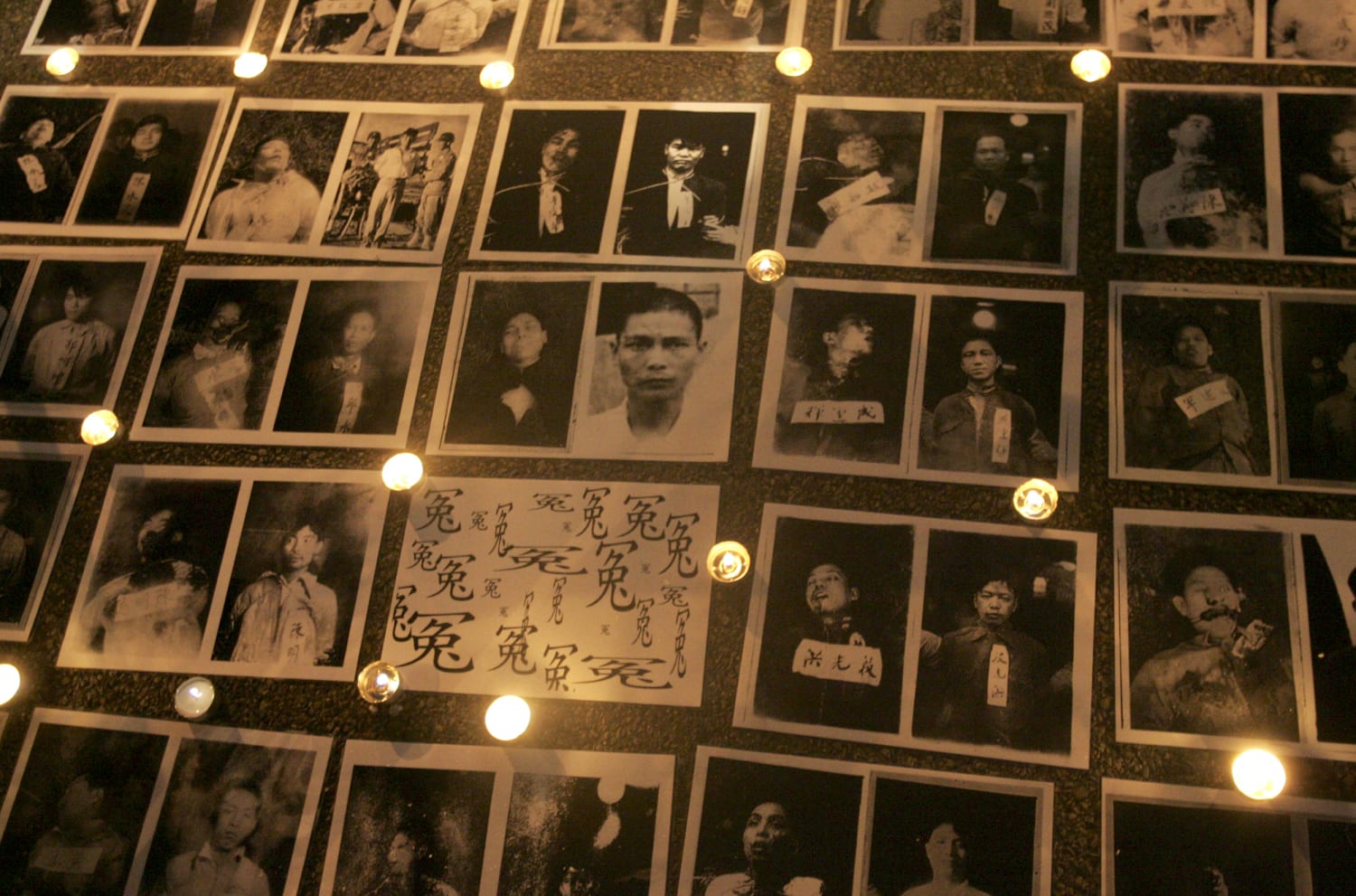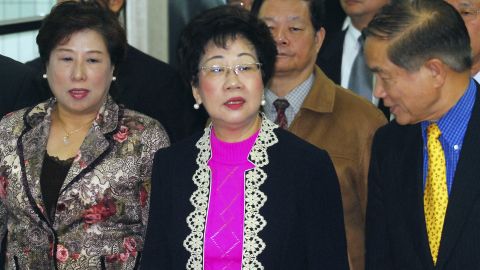
History of the “White Terror”
February 28th, 2022 marked the 75th anniversary of the “White Terror” period in Taiwan. From 1947 to 1987, this was a four decade long crackdown on political dissent. February 28th, 1947 is considered to be the day where the crackdown began as it was on this day where the government violently suppressed an uprising in Taipei, the capital of Taiwan. This occurrence is also known as the “228 Incident”. This uprising was sparked on February 27th where a police officer hit a contraband cigarette seller in the head while confiscating her supply, causing bystanders to come to her defense only for police to fire and kill one of them. Protests followed by violent riots then erupted, with complaints on topics such as inflation, corruption, and other conflicts between locals and mainland Chinese officials. On this day, it is estimated that between 18,000 and 28,000 people were killed, followed by another 10,000 people in the four decade period that followed. This crackdown was imposed by the authoritarian regime at the time, and up to 200,000 people were imprisoned. Both political activists and apolitical people were accused and imprisoned.

Following the Chinese Civil War, the Kuomintang (KMT), China’s defeated nationalist party, was exiled to Taiwan. In order to address internal and external crises and consolidate its authoritarian regime, the government put into effect two different laws. The first was the “Temporary Provisions Effective During the Period of the Communists Rebellion in 1948”, which was then followed by the “Marital Law” in 1949. Other laws and policies put into effect were the “Statutes for the Detection and Eradication of Spies during the Period of Communist Rebellion”, which was passed May 23rd of 1950 and effective as of June 13th that same year, and was subsequently followed by “Statutes for the Punishment of Rebellion”. Those who seemingly violated these acts were not only arrested and imprisoned but also tortured, resulting in false confessions and unjust convictions.

Annette Lu, Taiwan’s first female vice president, in 2007. In 1979, Lu, a pro-democracy activist, was arrested after giving a speech at a human rights parade, criticizing the KMT government in her speech for denying Taiwanese people their freedom. Sentenced to 12 years, she wrote a novel using the prison toilet paper. In the end she was released after 5 and half years.
Taiwan’s Healing
As of now, Taiwan is healing from and addressing this period.
“Among the younger generation, there has been heightened awareness about white terror and our history of democratization in recent years…New creations of literature and artwork on this topic are evidence that more people are paying attention.”- Sociology Professor Wu
In 2018, President Tsai Ing-wen, only the second president within Taiwan’s history to not be affiliated with the KMT, set up a transitional justice committee in order to review injustices that took place during the authoritarian era. The committee officially exonerated former prisoners as well as offered compensations. Remembering this period has also brought about a stronger sense and support of democracy within Taiwan and Taiwanese people.
“Taiwan now has a shared history and identity. For many, human rights and democracy are very important,”- Professor Wu
Sources:
https://www.nhrm.gov.tw/w/nhrmEN/White_Terror_Period
https://www.cnn.com/2022/02/28/asia/taiwan-228-democracy-intl-hnk-dst/index.html



 After researching many topics concerning China this fall it has become clear to me what the biggest issue is. While there are many human rights violations it is clear that the Uyghur genocide is the most severe. There is a people group that is being put in concentration camps targeted solely based on their ethnicity. It is hard to fathom that in 2022 countries are still committing atrocities like this. It’s even more concerning that not many people have heard about it. The Uyghurs are an ethnic group of about 12 million people who live in the east province of Xinjiang in China. Since 2017, the Chinese government has arbitrarily detained more than one million Muslims in detention camps. From satellite images we can see at least 85 camps in this province alone. The Chinese government at first denied that these camps existed but now has said that these are re-education centers. They are not educating these people but rather they are arresting them and beating and torturing them. In addition, Uyghurs in the region were subjected to increased surveillance, forced labor and forced sterilization, as well as other abuses. Even outside the camps, the 12 million Uyghurs living in Xinjiang – officially called the Xinjiang Uyghur Autonomous Region – continue to suffer decades of oppression by the Chinese authorities. They cannot name their children Muslim names and clerics are being arrested. Their practices and ways of life are being suppressed by the Chinese government. The leaders want to separate into a different country since many of them are not ethnically Chinese. They want to become a country called East Turkestan. While there have been long held historical issues between the Uyghurs and the Chinese government, this is absolutely unacceptable and they need to be held accountable for it. They are committing acts of genocide and the Uyghur people are protesting but they are being heavily silenced. We need to bring attention and cannot allow 12 million people to be targeted and killed.
After researching many topics concerning China this fall it has become clear to me what the biggest issue is. While there are many human rights violations it is clear that the Uyghur genocide is the most severe. There is a people group that is being put in concentration camps targeted solely based on their ethnicity. It is hard to fathom that in 2022 countries are still committing atrocities like this. It’s even more concerning that not many people have heard about it. The Uyghurs are an ethnic group of about 12 million people who live in the east province of Xinjiang in China. Since 2017, the Chinese government has arbitrarily detained more than one million Muslims in detention camps. From satellite images we can see at least 85 camps in this province alone. The Chinese government at first denied that these camps existed but now has said that these are re-education centers. They are not educating these people but rather they are arresting them and beating and torturing them. In addition, Uyghurs in the region were subjected to increased surveillance, forced labor and forced sterilization, as well as other abuses. Even outside the camps, the 12 million Uyghurs living in Xinjiang – officially called the Xinjiang Uyghur Autonomous Region – continue to suffer decades of oppression by the Chinese authorities. They cannot name their children Muslim names and clerics are being arrested. Their practices and ways of life are being suppressed by the Chinese government. The leaders want to separate into a different country since many of them are not ethnically Chinese. They want to become a country called East Turkestan. While there have been long held historical issues between the Uyghurs and the Chinese government, this is absolutely unacceptable and they need to be held accountable for it. They are committing acts of genocide and the Uyghur people are protesting but they are being heavily silenced. We need to bring attention and cannot allow 12 million people to be targeted and killed./https://tf-cmsv2-smithsonianmag-media.s3.amazonaws.com/filer_public/11/7c/117cb62d-3009-4570-9687-ac7a11515102/gettyimages-1228292974.jpg)
